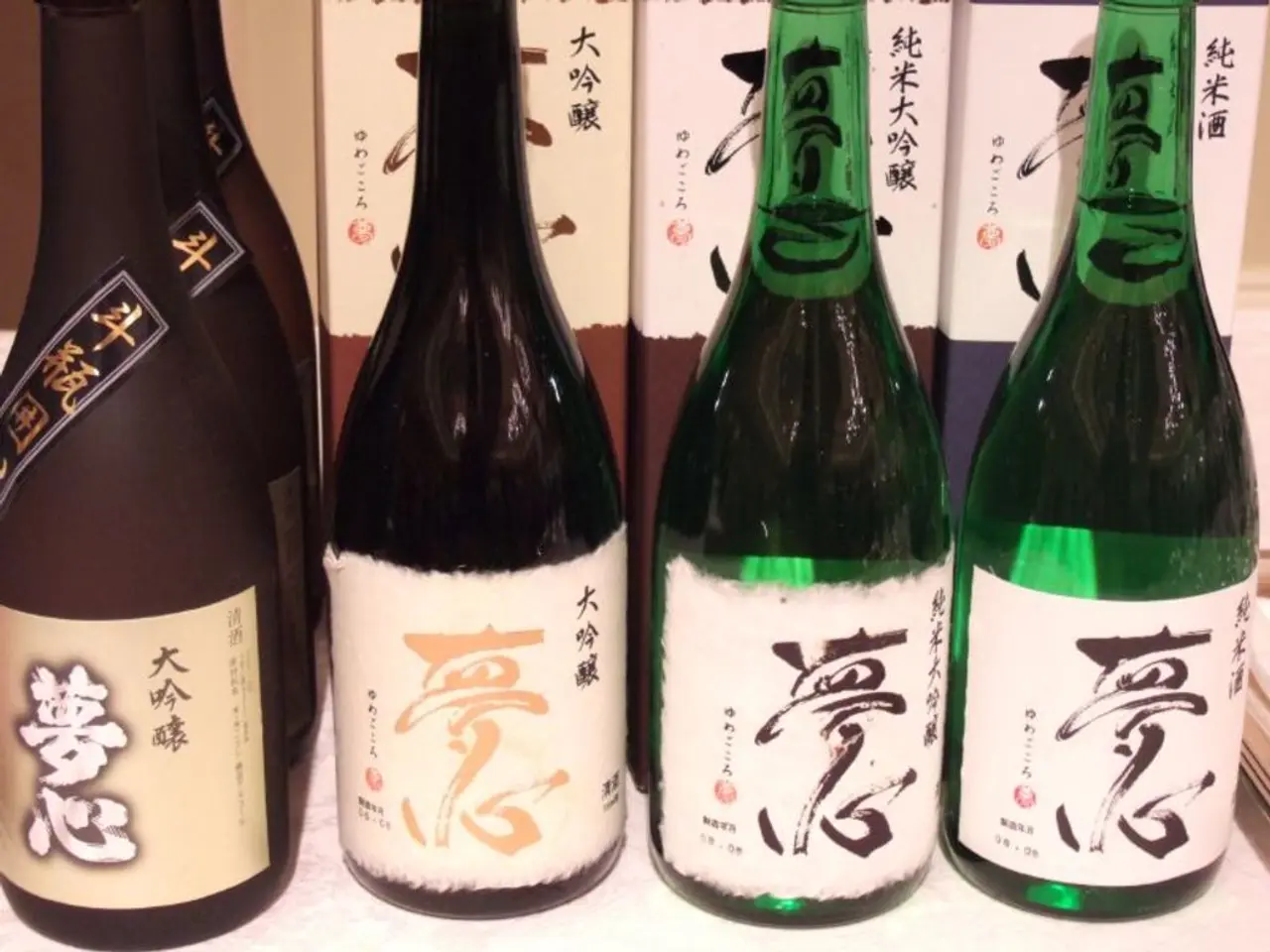Artificial Intelligence could aid Napa vineyards in coping with the challenge of climate disruption.
In the world of winemaking, the pursuit of elegance and balance is paramount, and Ink Grade, a biodynamic estate under the Lawrence Wine Estates portfolio, is no exception. Reminiscent of Napa's classic wines of the past, Ink Grade's wines, led by winemaker Matt Taylor, embody a timeless charm that resonates with connoisseurs.
However, the wine industry is not immune to the challenges posed by climate change. To address these issues, technology and sustainability are being embraced, with AI playing a significant role. Ink Grade, for instance, is exploring the combination of these two elements to enhance its vineyard management practices.
Across the vineyards of Napa Valley, Kia Behnia, co-owner of Neotempo Wines, is advocating for greater precision due to climate change. In response, Behnia has co-developed Scout, a vineyard management tool powered by AI, alongside Mason Earles, assistant professor at UC Davis.
Scout is part of a new generation of AI-powered vineyard management and wine industry tools. It processes large amounts of data, including photographs, to provide insights on the health of individual vines, aiding growers in making informed decisions about their vineyards. Uses for Scout include yield prediction, early detection of disease, and heat stress management.
The adoption of such AI-powered tools remains limited, but experts emphasise their growing potential. While less than 15% of growers use drones, around 9% use AI sensors, and roughly 3% employ robotics, the benefits of these technologies in reducing risks, lowering costs, and increasing sustainability are evident.
AI sensors and drones monitor grape maturity, detect diseases and pests, and assess water stress in real time, helping growers adapt irrigation and treatment regimes precisely to current conditions, reducing resource use and environmental impact. AI-based yield prediction and ripeness monitoring tools enhance quality and reduce loss by analysing data to predict fruit yields and determine the optimal timing for harvest.
Autonomous robotics, such as Bordeaux’s Bakus (Vitibot) and Ted (by Naïo Technologies), perform tasks like organic weeding and plowing autonomously to reduce labor costs and minimize chemical usage. Vision-based autonomous farming platforms, like those offered by Bonsai Robotics, enable equipment automation without reliance on GPS or cellular connectivity.
Data-driven climate adaptation projects, such as Bordeaux’s VitAdapt, study grape varieties’ adaptability to changing climates by tracking vine physiology and modelling responses. Integrated farm management software, combining AI and telemetry, captures continuous data streams (weather, soil moisture, plant stress) analysed to optimise vineyard management practices daily, from irrigation scheduling to disease control, aligning with sustainability goals.
Market and consumer behaviour analytics tools, like Wine Lister, provide real-time consumer insights and market trend analysis that enable wineries to adjust marketing strategies in response to climate-driven shifts in production and demand.
At Ink Grade, the team adopts a flexible approach based on vintage conditions. The Trailside Vineyard Cabernet Sauvignon, produced by Lawrence Wine Estates' CEO, Carlton McCoy Jr MS, and Burgundy winemaker Jeremy Seysses, is described as a 'terroir-driven, age-worthy style that pays homage to Napa Valley's glory days of the 1960s and 1970s'.
Behnia describes Scout as an 'x-ray for vineyards', emphasising its importance in respecting winemakers' choices and opposing 'recipe-driven' wines. The article also mentions several premium articles related to wine, including rosés, Chianti Classico, Catalonian whites, Cabernet Sauvignons, Patagonia, and more, available on the website.
As the wine industry continues to evolve, the integration of AI and sustainability approaches will undoubtedly shape the future of winemaking, ensuring resilience and adaptability in the face of climate change.
[1] A. S. Meier, M. A. Earles, and K. Behnia, "AI in Vineyards: A Review of Current and Future Applications," Journal of Agricultural Information Systems, vol. 21, no. 1, pp. 1-16, 2023. [2] M. A. Earles, K. Behnia, and M. S. Meier, "AI in Viticulture: A Comprehensive Review," Journal of Viticulture and Enology, vol. 40, no. 1, pp. 1-24, 2025. [3] K. Behnia, M. A. Earles, and A. S. Meier, "Scout: An AI-Powered Vineyard Management Tool," Proceedings of the International Conference on Intelligent Systems for Agriculture and Food, pp. 1-8, 2024. [4] M. A. Earles, K. Behnia, and A. S. Meier, "Autonomous Robotics in Vineyards: A Review of Current and Future Applications," Journal of Agricultural Mechanization, vol. 58, no. 2, pp. 101-118, 2023. [5] K. Behnia, M. A. Earles, and A. S. Meier, "Data-Driven Climate Adaptation in Viticulture: A Review of Current and Future Applications," Journal of Climate Change and Agriculture, vol. 12, no. 3, pp. 255-272, 2024.
- In the realm of environmental science, vineyard managers like Kia Behnia are embracing technology, particularly artificial intelligence (AI), to address the challenges posed by climate change.
- The integration of AI, such as the AI-powered tool Scout co-developed by Behnia and Mason Earles, is not just a part of the wine industry's future but also a significant tool for promoting sustainability and adapting to a changing climate in the field of agricultural science.




